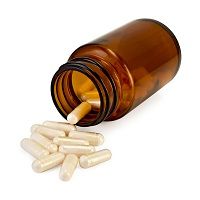Article
Are Probiotics Effective in the Remission of Ulcerative Colitis?
Author(s):
It’s been suggested that probiotics can help prevent relapses in ulcerative colitis, but a new analysis presented in a poster session at the 2015 Advances in Inflammatory Bowel Diseases conference (AIBD 2015) in Orlando, Florida argues that that’s not the case.

It’s been suggested that probiotics can help prevent relapses in ulcerative colitis, but a new analysis presented in a poster session at the 2015 Advances in Inflammatory Bowel Diseases conference (AIBD 2015) in Orlando, Florida argues that that’s not the case.
The study authors are researchers from the United Kingdom who had previously conducted the Cochrane review where they examined four trials for the efficacy of probiotics. The results showed no evidence linking probiotics to benefits, however, it has been years since that review and more research on the topic has been uncovered. So the team went back at it with a new analysis.
The researchers reviewed seven randomized controlled studies that compared probiotics to a placebo, or other medication, for at least three months to find the outcomes in ulcerative colitis remission. The studies varied in duration from three to 12 months and participants were of all different ages. Four of the trials compared probiotics to mesalazine and the other three used a placebo.
- The MD Magazine Gastroenterology specialty page
What would the team find this time? Is probiotics actually beneficial for the gastric condition? Well, in short, no. Hundreds of patients were included in the overall population and yet again, the results came back that there is no statistically significant difference between probiotics and placebo in the maintenance of ulcerative colitis. In addition, there was no statistically significant difference in adverse effects between the groups.
“There is no evidence to suggest superiority to mesalazine for the maintenance of remission in ulcerative colitis, but there was no evidence to suggest differences in the adverse events profile between these agents,” the authors confirmed.
Although this is the second time that team is examining probiotics in this condition, they suggest further evaluation to explore the potential of the strategy.
What to Read Next >>> More from the AIBD 2015 conference




